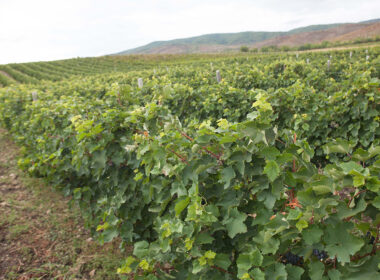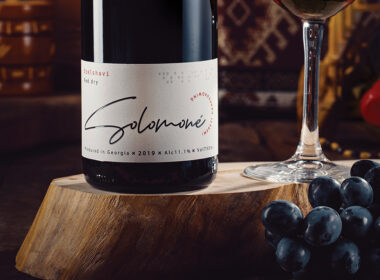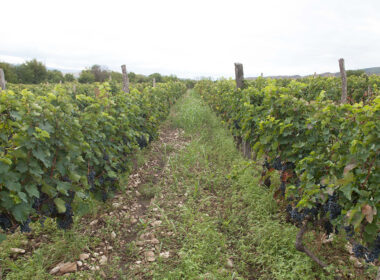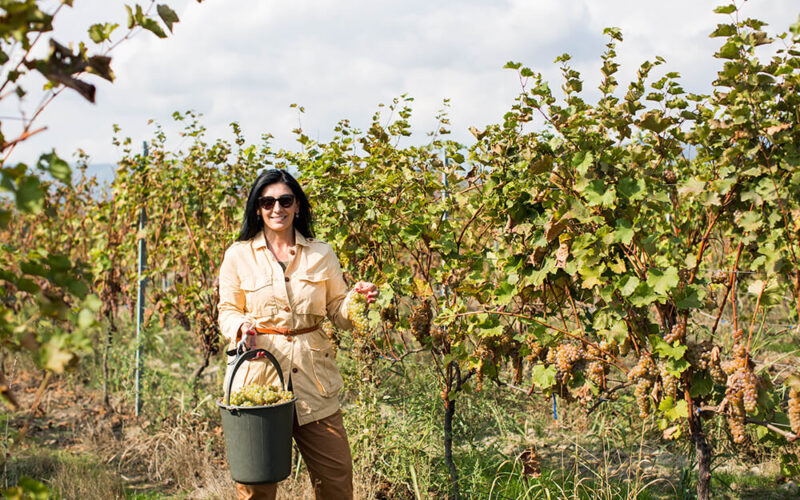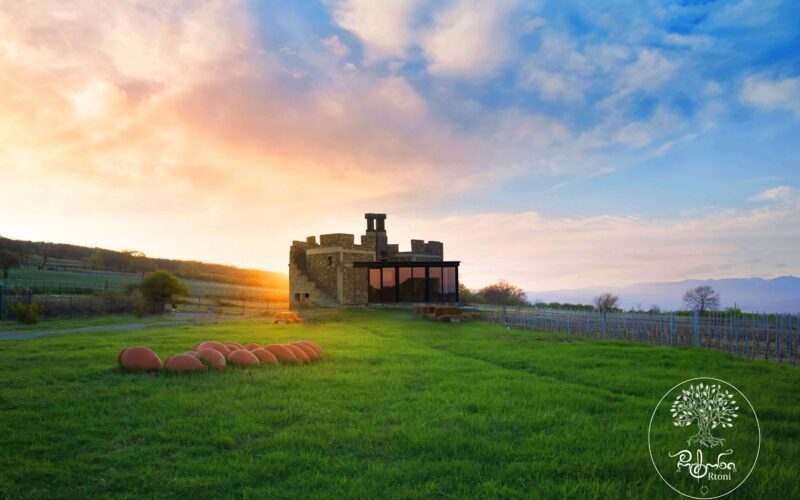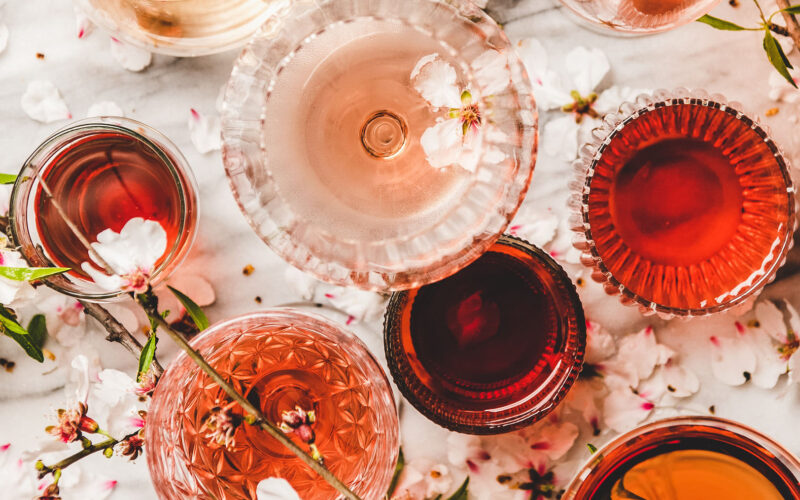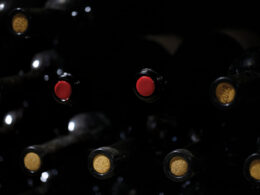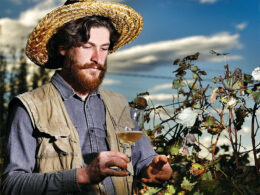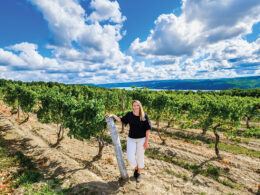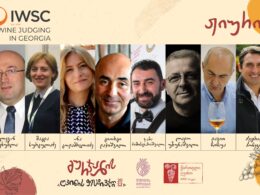Vaziani Winery, with its roots dating back to 1982, and its premium collection, Makashvili Wine Cellar, with a rich family tradition dating to 1888, has emerged as a vanguard in the global wine industry.
With a history deeply embedded in centuries-old winemaking traditions, the winery has undergone a remarkable transformation under the visionary leadership of Natia Metreveli. Today, it stands as a name synonymous with quality, sustainability, and innovation.
In this exclusive interview, we sit down with Mrs. Natia Metreveli to delve into her extraordinary journey, the strategies that have propelled Vaziani Winery to greatness, and her vision for the future of Georgian wine.
Thank you for joining us to discuss the recent successes and challenges facing the wine industry and your remarkable journey within it. Could you share a pivotal moment that ignited your passion for wine and ultimately led you to become a leader in the industry?
It is my pleasure. My passion for wine was sparked during my early days in the industry while working with one of Georgia’s leading wineries in the early 2000s. During this time, I had the opportunity to immerse myself in the vineyard and production management process. This hands-on experience allowed me to witness the intricate art of winemaking, from soil to bottle. It was this experience that laid the foundation for my deep connection to the world of wine and my determination to excel in this field.
Your tenure at Vaziani Winery is marked by remarkable achievements and a transformative approach. Could you tell us about one of the strategies you implemented that significantly contributed to the winery’s success?
Meanwhile, congratulations on winning the Grand Prix in Tokyo; it’s impressive that Vaziani Winery is the only company from Georgia to have won several of these prestigious awards at the Sakura Women Wine Awards in Japan.

Thank you very much. Winning the Grand Prix in Tokyo among 4800 world wines was indeed a significant victory, not only for Vaziani but also for Georgian wine and the entire industry, as Qvevri Amber wine gained popularity not only in Japan. As to transformation one of the pivotal strategies that played a crucial role in our success was our shift from an industrial focus to a quality-driven approach. This involved diversifying our product range and markets, implementing rebranding strategies, and focusing on creating high-quality wines. We also established distinct segments in our product offerings, catering to both medium and premium markets. This shift not only improved our profit margins but also positioned us as leaders in traditional Qvevri wine exports, gaining recognition both domestically and internationally. Since 2017, Vaziani’s success has continued to soar, with us receiving more than 50 highest awards, reviews, recognitions, and feedback from international experts. Our commitment to quality improvement and our team’s dedication to our new winemaking philosophy have been instrumental in achieving these results.
Georgia’s wine industry is increasing and has undergone significant changes, and your contributions have been noteworthy. Could you elaborate on how you navigated challenges such as market dependencies and geopolitical conflicts to continue your success trajectory?
Certainly, challenges are inherent in any industry. In the face of market dependencies and conflicts, we chose to diversify our target markets and develop a clear marketing strategy. This approach helped us reduce our dependence on a single market, ensuring greater stability in our operations. Moreover, by leveraging partnerships and funding, we secured resources that allowed us to maintain our growth trajectory despite external pressures.
Your commitment to sustainable practices in winemaking and community impact is noteworthy. Can you share a specific initiative that highlights your dedication to both environmental sustainability and community well-being?
Absolutely. At Vaziani Winery, we are committed to promoting sustainability at every level. One initiative that exemplifies this commitment is our collaboration with suppliers to implement eco-friendly practices. By focusing on organic and sustainable viticulture, we not only produce high-quality grapes but also contribute positively to the environment. Additionally, we engage with local communities through educational programs, fostering a sense of responsibility for our surroundings and encouraging sustainable practices beyond our vineyards and production plants. We have also undertaken a detailed assessment project in collaboration with the EU4 Environment initiative, funded by the European Union, to ensure resource-efficient and cleaner production in our plant. This is a long term plan and needs carefully and distinct execution.

It seems that we often hear that “good wine starts in the vineyard,” but wine production and technology in Georgia are a bit different. How do you cultivate close cooperation with the vineyard management team for excellence?
Our winemaker has a professional background in sustainability and organic approaches, which equips him with a deep understanding of plant physiology and vine health. He spends as much time as possible in the vineyards throughout the year leading up to harvest to closely monitor progress and address any issues promptly. Our relationships with the suppliers and growers we work with are built on trust and professionalism, particularly for our premium brand, Makashvili Wine Cellar. For this product, grapes are selected with great care, considering appropriate temperatures, and are hand-picked. Effective communication and mutual respect have been essential in managing vineyards and maintaining strong relationships with other growers, vineyard managers, and all those involved in our daily vineyard operations.
As you have grown professionally in the wine business, have you noticed more wine producers transitioning to sustainable production methods despite the challenges of a lack of knowledge and a sufficient workforce?
Certainly, the Georgian wine industry has evolved significantly, especially in terms of adopting sustainable practices. Many vineyards in Georgia are relatively new, and there is a growing interest in modern standards, which differ significantly from the industrialized approach during the Soviet era. For instance, in 2019 alone, we planted over 42 hectares of new vineyards, not only with Georgian indigenous grape varieties but also European grapes like Montepulciano. Our approach emphasizes the use of organic products and early detection of diseases. Each year, we create a treatment plan for our extensive vineyards, with each year presenting unique challenges in terms of sustainable practices. This is a monumental effort that requires unwavering dedication from our team. Our winemakers are deeply involved in every process. However, one major challenge we face year after year is the shortage of a skilled workforce. We were one of the pioneering companies involved in training and internships for young professionals, since we believe that this profession will become increasingly popular. Currently, we have three students from professional colleges under a three-year contract, primarily involved in the production plant rather than the vineyards. Unfortunately, most of them prefer to gain expertise in wine production and plant management rather than vineyard work. I believe we will soon face a significant shortage of skilled labor, especially professional agronomists, which presents a considerable challenge to the industry.
The wine industry has long been male-dominated, not only in Georgia but also globally. Do you believe that gender expectations are finally shifting in the industry?
It’s interesting; I recently had a conversation with a fellow woman winemaker at an exhibition in Dusseldorf, Germany and we both discussed at the somewhat surprising reactions we still receive. Questions like, “Do you really manage a wine company?” “Do you really make a wine? That still remain fairly common. I recall a particular moment during an wine industry meeting where the regional governor addressed the audience with “Gentlemen and Ladies” (surprisingly, in our country some still start greetings with “Gentlemen”). He paused when he saw me, and there was an awkward silence before he corrected himself with “Lady” and Gentlemen. I looked around, and I was the only woman sitting at the large round table. The transformation of long-held expectations is a gradual process, and it’s not unique to the wine industry; women remain underrepresented in executive positions across various sectors. However, I’ve noticed an increasing number of women becoming involved in the wine industry, and it brings me great joy to see many women managing small wine cellars with immense dedication to the industry.
What do you find most challenging about being a female CEO of a winery?
Honestly, it’s the simultaneous occurrence of harvest season and back-to-school time every year. It’s the only time I wish I could clone myself! I am a mother, and during the harvest season, which is like a festive celebration for our industry, I relocate to Kakheti for about two months. Managing this process effectively requires on-site presence, and it can be challenging to balance my roles as a CEO and a mother during this intense period.

Looking ahead, what can we anticipate from you and Vaziani Winery in the coming years? Are there any exciting projects or ventures on the horizon?
The future holds exciting prospects for Vaziani Winery. We are poised to continue expanding our global presence, introducing our exceptional Georgian wines to new markets. Additionally, we’re exploring innovative winemaking techniques that bridge traditional practices with modern advancements. On the horizon, we’re also considering ventures that would promote wine tourism, bringing enthusiasts closer to the essence of our wines and our rich winemaking heritage. Our commitment to excellence and innovation remains unwavering as we chart a dynamic path forward in the ever-evolving wine industry.
What do you see as the future of Georgian wine?
For sure, it is key to take a reputable place in new markets and reduce dependence on Russia while introducing Georgia as the true homeland of wine. Georgian wine represents not only a beverage but also a cultural and ancient civilization heritage, and it deserves to be treated as such.
I am hopeful that the concept of Georgian wine, as well as Georgian food, will expand its reach to an increasing number of people worldwide who deeply care about what they consume, how it’s produced, its historical significance, and its thoughtful craftsmanship. By maintaining a strong focus on quality and sustainability, we aim to carve out a niche globally where consumers are increasingly discerning and appreciative of unique, well-made products.

